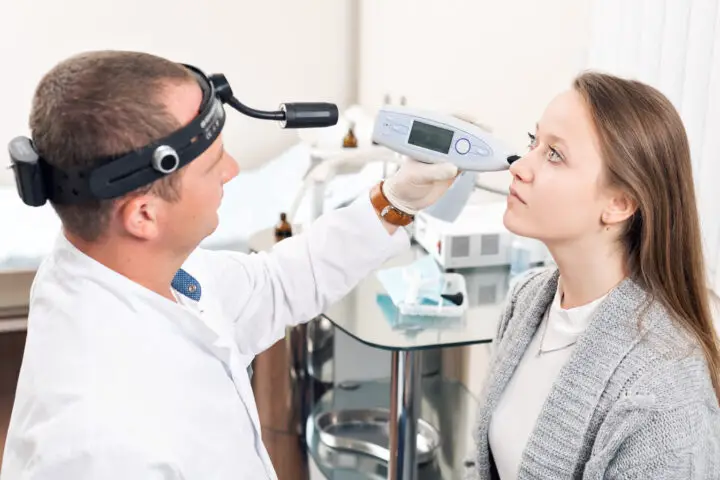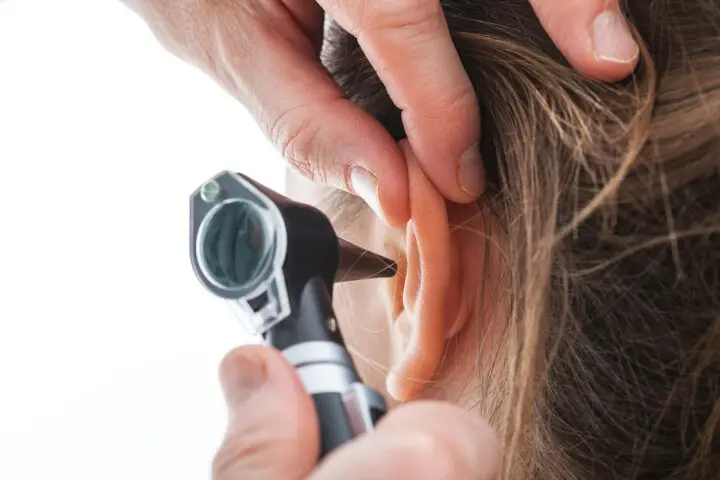What is an Ear Nose and Throat Specialist Called?

Your General Practitioner (GP) can help you manage most conditions of the Ear, Nose, and Throat. If you’re dealing with a serious issue, though, they may suggest that you see an Ear, Nose, Throat specialist.
An Ear, Nose, and Throat specialist is also a trained doctor. The standout difference between this type of doctor and others is that the ENTs focus on the head and neck issues, most specifically, the ear, nose, throat, and the base of the skull.

ENT specialists are called otolaryngologists. During an appointment with the Ear Nose Throat specialist such as entspecialistsingapore.com, they will evaluate your medical history and recommend the right treatments to help you manage the condition you’re struggling with.
They may also recommend that you have tests. This is mostly common in situations where your symptoms aren’t clear or when the ENT wishes to confirm a diagnosis.
If you’re dealing with more complicated issues, for instance, if the ear, nose, and throat specialist suspects that you could be having some form of cancer, they may collect tissue samples and forward them to the lab for detailed exams. These doctors are also trained to help with surgeries, so if you require surgery, they can help you with that as well.
Which Condition would an Ear, Nose, and Throat Specialist treat?

There are several conditions that may make your GP recommend that you schedule an appointment with a board-certified ear, nose, and throat specialist. In most cases, these are issues that require specialist care. You can expect your GP to refer you to the otolaryngologist if you have any of these conditions:
-
Nose and Nasal Complications like Polyps, Allergies, and Sinusitis
Nasal polyps are growths that form in the lining of your sinus or nose area. They’re usually noncancerous, implying that they are not usually causes of concern if they do not cause you any complications.
Your ear, nose, and throat specialist can detect the polyps through a simple scan that involves lighted medical equipment used for examining the inside of your nose. Other than the simple exam, a CT scan may also be recommended to check for polyps and any other abnormalities in your nose and sinus area.
If the polyps are causing problems, your ENT doctor may recommend non-surgical or surgical treatments to remove the polyps. In non-surgical treatments, the focus is usually to reduce the growths in size, whilst in surgical treatments, the polyps are surgically removed.
An ENT can also help with allergies. Usually, they work with allergists to control conditions in which allergies are causing complications to your ears, nose, throat, and sinus regions. It is recommendable that you see your ear, nose, and throat specialist for allergies if your condition is chronic and recurs frequently.
It is recommendable that you call your ENT specialist if you suspect that you could be dealing with sinusitis to increase your chances of improving the condition. The ear, nose, and throat specialist can help you treat sinusitis and help you reduce the chances of getting repeat sinusitis episodes.
-
Sleep Troubles like Obstructive Sleep Apnea (OSA) or Snoring

Snoring isn’t fun, and in most cases, it occurs as a result of a condition. Ear, nose, and throat doctors treat sleep apnea and snoring, so; they could be your best bet if you’ve tried to stop snoring through conventional ways with no success.
If you see an ear, nose, and throat specialist if you suspect that you could be struggling with issues like sleep apnea which may be caused by structural issues like large tonsils, they will examine you and, if needed, recommend imaging tests for a better view of your airways. Usually, they will examine the sinuses and nasal pages to ensure that they’re not responsible for the obstruction in your nose.
If during the exam they determine that structures like the soft palate, adenoids, or tonsils are the cause of your problems, they may recommend surgically removing them to restore your breathing.
Again, if during the exam, the ear, nose, and throat specialist determine that your snoring problems are due to structural issues like a deviated septum, etc., they may recommend procedures like septoplasty to make your septum straight and improve your breathing. Surgery isn’t usually the only treatment for chronic snoring if you visit an ENT specialist.
They may also recommend therapies like the use of Continuous Positive Airway Pressure (CPAP) device or pillar implants to improve your breathing. Note that therapies like the use of a CPAP device for chronic snoring would not treat your snoring but only put it under control.
-
Ear Conditions like Hearing Loss, Ear Infections, or Balancing Troubles

An ear, nose, and throat specialist is the right kind of doctor you should see for chronic ear complications. They can help with issues like hearing loss, ear infections and balancing problems, etc.
Just as you’d expect, the first thing your ENT will do for such issues is to examine your ears. They would then suggest the most appropriate treatment to correct the problem or managing the symptom, especially if your condition is due to issues like an infection.
-
Tumors or Infections on your Neck or Head
You should see your primary doctor for a lump on your neck or head. Again the primary doctor may recommend an appointment with the ear, nose, and throat specialist if they suspect that the infections or lumps on your neck are indicative of something serious like cancer, for example.
During the appointment, the ENT doctor will, of course, review your medical history. They would also physically examine the infections or tumors and order lab tests if they suspect that the infections could mean cancer or any complicated condition.
Your treatment may involve surgical removal of the lumps and treatment administration to take care of your infections. Management of cancers takes different forms, so the treatment that your ENT may recommend will depend on issues like your medical history and the stage of cancer if you’re diagnosed with cancer.
-
Throat Problems

The ear, nose, and throat specialists are also the doctors you should see for throat problems like voice issues, tonsillitis, and swallowing complications. They can treat throat problems like tonsillitis and perform surgeries for issues like adenoids etc.
